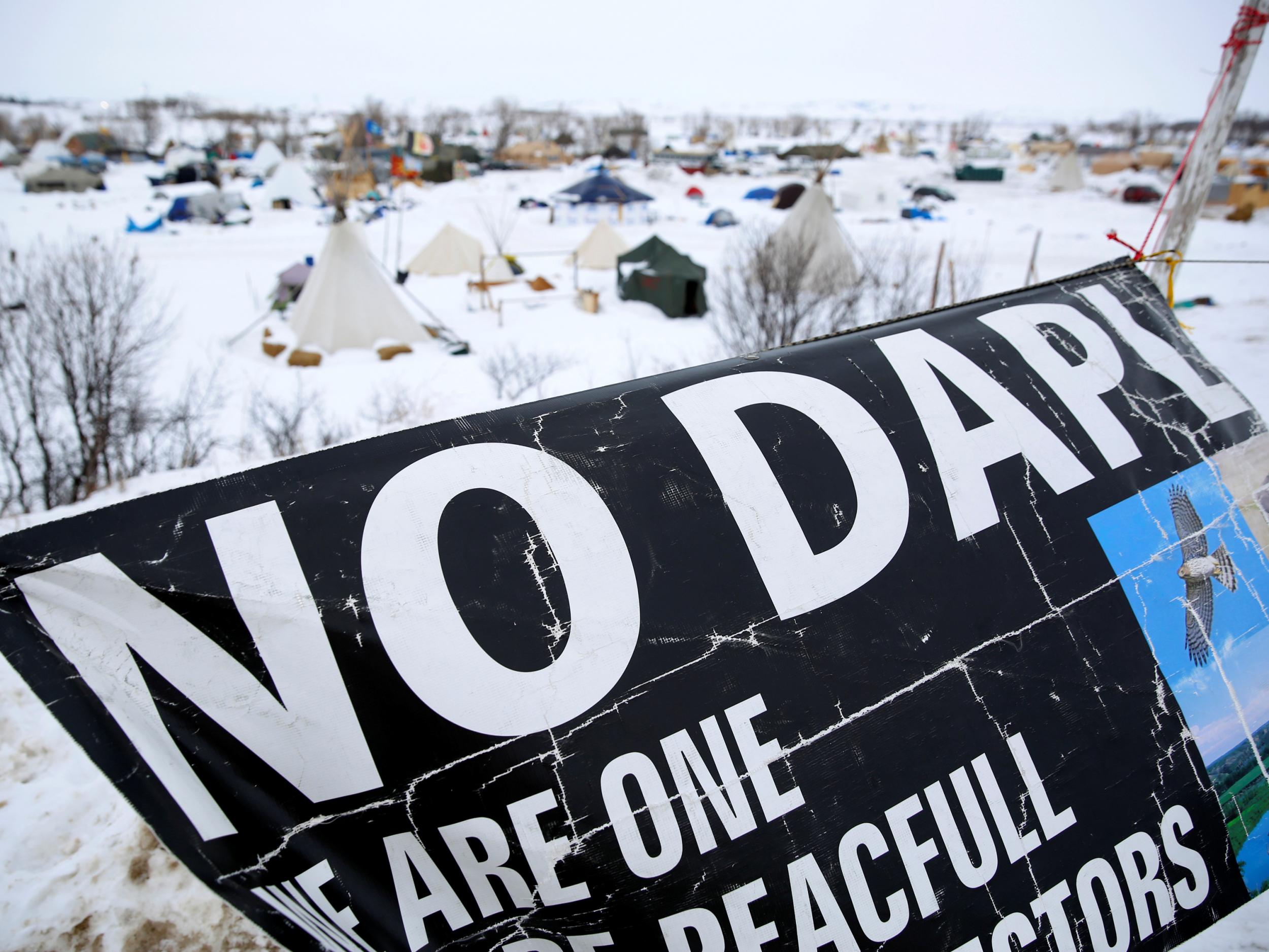Dakota Access Pipeline: Oil company executive compares protesters to terrorists
Energy Transfer Partners vice president Joey Mahmoud accuses demonstrators of assaulting construction workers and destroying millions of dollars' worth of equipment

Your support helps us to tell the story
From reproductive rights to climate change to Big Tech, The Independent is on the ground when the story is developing. Whether it's investigating the financials of Elon Musk's pro-Trump PAC or producing our latest documentary, 'The A Word', which shines a light on the American women fighting for reproductive rights, we know how important it is to parse out the facts from the messaging.
At such a critical moment in US history, we need reporters on the ground. Your donation allows us to keep sending journalists to speak to both sides of the story.
The Independent is trusted by Americans across the entire political spectrum. And unlike many other quality news outlets, we choose not to lock Americans out of our reporting and analysis with paywalls. We believe quality journalism should be available to everyone, paid for by those who can afford it.
Your support makes all the difference.A top executive at the company building the controversial Dakota Access Pipeline is comparing pipeline opponents to terrorists.
Joey Mahmoud, executive vice president of Texas-based Energy Transfer Partners, says protesters have “assaulted numerous pipeline personnel,” destroyed millions of dollars’ worth of construction equipment and even fired a pistol at law enforcement during months of demonstrations against the 1,200-mile pipeline, which will carry North Dakota oil to an Illinois terminal.
Mahmoud tells Congress that the protest movement “induced individuals to break into and shut down pump stations on four operational pipelines. Had these actions been undertaken by foreign nationals, they could only be described as acts of terrorism.”
The chairman of the Cheyenne River Sioux, one of two tribes suing to stop the project, called Mahmoud’s comments unfair to project opponents.
“The majority of them are there in prayer,” Chairman Harold Frazier told reporters Wednesday. “From what I’ve seen (law enforcement officers) are the terrorists.”
Law enforcement has used tactics such as rubber bullets, tear gas and water sprays against protesters during clashes in southern North Dakota near the pipeline route, Frazier said, adding that he personally has been hit by rubber bullets and tear gas.
In testimony Wednesday for a hearing before a House energy subcommittee, Mahmoud also blasted the Obama administration, which twice delayed the project last year.
Mahmoud called the delays “politically motivated actions” that were “accompanied by a host of half-truths and misrepresentations in both social and mainstream media.”
Mahmoud also targeted the Standing Rock Sioux Tribe, whose reservation lies near the pipeline’s route and who say the pipeline threatens their water supply and tribal artefacts.
The pipeline developer reached out to the tribe more than two years ago but has been continually rebuffed, Mahmoud said.
“It was clear from their response they had no interest in discussing the project with us,” he said.
Mahmoud challenged the tribe’s objections and said the pipeline poses little threat to drinking water. The Dakota pipeline will be at least the 15th pipeline to cross the Missouri River, will employ state-of-the-art technology and will be buried more than 90 feet below the lowest part of the river, Mahmoud said.
“To cast this as a dispute about protection of water resources is, quite simply, at variance with the facts, and it ignores universally accepted scientific and engineering practices,” he said.
Chad Harrison, a councilman at-large for the Standing Rock Sioux, said the federal government and the pipeline company “ignored the concerns of the tribe” for almost three years before the Obama administration paused the project last September. On December 4, then-assistant Army secretary for civil works, Jo-Ellen Darcy, declined to issue an easement, saying a broader environmental study was warranted.
“To be clear, the tribe does not oppose economic development, energy independence or protecting our national security,” Harrison said. “What we oppose is development that is undertaken without our consent and in such a way that it is our community, our people, our cultural sites and our natural resources that are put at the most risk, and when we are the ones who will pay the cost when something goes wrong.”
A federal judge on Monday refused to stop construction on the last stretch of the pipeline, which is progressing much faster than expected and could be operational as soon as next month.
US District Judge James Boasberg ruled that as long as oil isn’t flowing through the pipeline, there is no imminent harm to the Standing Rock Sioux and Cheyenne River tribes, which are suing to stop the project. Another hearing is scheduled on February 27.
AP
Join our commenting forum
Join thought-provoking conversations, follow other Independent readers and see their replies
Comments